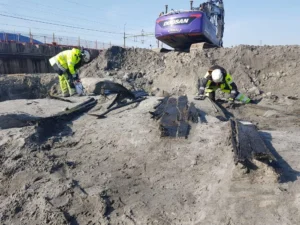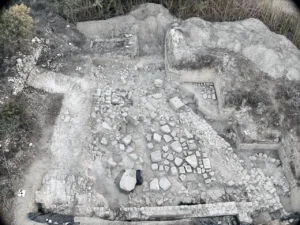Current Affairs 15 July 2025
India’s Maratha Military Landscapes earn UNESCO heritage status. Explore why 12 forts matter, what boosts national pride, and what comes next.
International Affairs
UNESCO Heritage
Maratha Military Landscapes Inscribed on UNESCO List
Summary: India scored a major win on July 11, 2025, when UNESCO added the Maratha Military Landscapes—12 forts from Maharashtra and Tamil Nadu—to its World Heritage List. India now has 44 sites, ranking 6th globally and 2nd in Asia‑Pacific. The forts, built between the 17th and 19th centuries, include Raigad, Shivneri, and Gingee. Their inclusion highlights architectural brilliance and living heritage of the Maratha Empire.
Key Takeaway: Recognizing these forts celebrates India’s historic engineering feats and honors national pride while promoting heritage tourism.
AI Ayurveda
WHO Hails India’s Global Lead in AI-Traditional Medicine
Summary: In July 2025, the World Health Organization (WHO) unveiled its first roadmap on AI in Traditional Medicine, spotlighting India as a pioneer in this integration. Platforms like SAHI, NAMASTE, and the Ayush Research Portal (ARP) were highlighted for blending AI with AYUSH knowledge. India’s Traditional Knowledge Digital Library (TKDL)—the first of its kind globally—was praised for safeguarding ancient medical wisdom while making it accessible for modern healthcare. This move strengthens India’s position as a global digital healer, mixing centuries-old wisdom with tomorrow’s tech.
Key Takeaway: AI + Ayurveda = India’s bold recipe for the future of healthcare.
Payment Power
India Becomes World Leader in Fast Payments via UPI
Summary: According to a June 2025 IMF report, India’s UPI clocked a whopping 18 billion transactions monthly, a 32% YoY growth. Since its 2016 launch, UPI has outpaced debit and credit cards, becoming the largest fast-payment system globally. In June alone, daily UPI transactions rose to 613 million, compared to 602 million in May. Built on IMPS, UPI has made money transfers so easy that even street vendors accept it. This transformation wasn’t just tech—it was cultural. The world’s watching how India’s fintech story is reshaping cashless economies.
Key Takeaway: From chaiwalas to CEOs—India’s digital payment revolution is unstoppable.
Fertilizer Pact
India-Saudi Arabia Ink 5-Year DAP Fertilizer Deal
Summary: In a major step toward food security, Union Minister JP Nadda sealed a 5-year pact with Saudi Arabia’s Maaden in July 2025 for 3.1 million metric tonnes of DAP fertilizers annually. The deal was signed by IPL, KRIBHCO, and Coromandel International. This ensures steady fertilizer supply till FY2030, with a possible 5-year extension. Beyond fertilizers, talks covered cooperation in generic medicines, vaccines, petrochemicals, and AYUSH practices. This visit also led to forming a Joint Working Group and deepened ties under the India-Saudi Strategic Partnership Council.
Key Takeaway: India just secured the future of its farms—with a handshake in Riyadh.
Startup Bridge
UAE-India Launch Cross-Border Innovation Platform
Summary: In July 2025, the UAE-India CEPA Council (UICC) and Embassy of UAE launched the Start-up Series at St Regis Mumbai. A landmark MoU was signed with IIT Bombay’s SINE, enabling Indian start-ups to get mentorship, licensing, and UAE market access. Bilateral trade hit $83.64 billion in FY24, a 15% rise since CEPA’s 2022 start. This event sets the stage for the flagship pitch day in New Delhi, where winners get direct entry to UAE’s investor network and incubation space.
Key Takeaway: Indian start-ups now have a VIP entry ticket to global markets—starting with UAE.
Talisman Sabre
India Joins Australia’s Largest Military Drill
Summary: For the first time, India joined the Talisman Sabre 2025 military exercise in Australia, running from July 13 to August 4. Over 35,000 personnel from 19 countries, including the US, Japan, UK, and Indonesia, are taking part. India’s involvement marks a strategic shift in Indo-Pacific alliances. This edition includes live-fire drills, amphibious landings, and cutting-edge weapon showcases like HIMARS and UH-60M Black Hawks. With newer regional collaborations like Papua New Guinea and observers from Vietnam and Malaysia, this exercise shows India’s growing global military footprint.
Key Takeaway: India’s boots in Australia = stronger Indo-Pacific ties and global readiness.
National Affairs
RS Nominations
President Nominates Eminent Experts to Rajya Sabha
Summary: On July 13, 2025, President Murmu used Articles 80(1)(a) and 80(3) to nominate four experts—Harsh Shringla, Ujjwal Nikam, Meenakshi Jain, and C. Sadanandan Master—to the Rajya Sabha. These nominations add experience in diplomacy, law, history, and education to Parliament. India’s Parliament allows up to 12 such non‑elected members to enrich debates with expert perspectives.
Key Takeaway: Expert nominations bring fresh voices into policymaking, boosting diversity of thought in governance.
NE Conclave
Nirmala Sitharaman Inaugurates North-East Startup Push
Summary: On 11 July 2025, Union Finance Minister Nirmala Sitharaman opened the North-East Conclave 2025 at IIM Shillong, aiming to spark a startup revolution across India’s North-East. Held under the theme “From Ideation to Incorporation”, the two-day event emphasized boosting entrepreneurship through policy support and education. Seven new MoUs were inked, and a regional IICA campus foundation stone was laid in Umsawli. By creating deeper links between policy thinkers and young minds, the event addressed how remote areas can become startup hubs. Over 200 attendees, including top bureaucrats and investors, discussed how to unlock this potential.
Key Takeaway: The North-East is getting its moment—one startup at a time.
E-Truck Boost
India Launches First-Ever Incentive Scheme for E-Trucks
Summary: In July 2025, the Ministry of Heavy Industries introduced a ₹500 crore demand incentive scheme under PM E-DRIVE. The plan offers up to ₹9.6 lakh per e-truck, especially in logistics-heavy cities like Delhi, which has been allotted 1,100 trucks under a ₹100 crore pollution-fighting provision. The initiative covers N2 and N3 truck categories and is part of India’s broader aim to go green while reducing freight emissions. With electric vehicle adoption lagging in the heavy transport segment, this is a breakthrough move. It not only pushes cleaner cargo delivery but also signals a huge shift for sectors like cement, ports, and steel.
Key Takeaway: Green logistics just got a turbocharge—with subsidies leading the way.
Digital Ambassadors
DoT Launches Sanchar Mitra Scheme for Youth
Summary: The Department of Telecommunications kicked off its nationwide ‘Sanchar Mitra Scheme’ in Guwahati in July 2025 to tap into student power. Engineering students from IITs, NITs, and IIITs will become “Digital Ambassadors,” spreading awareness about 5G, AI, cyber fraud, and mobile safety. Trained by National Communications Academy, they’ll get hands-on experience and even internships through national-level projects. Three pillars—Connect, Educate, and Innovate—guide the scheme. Over 18 institutions joined the launch event. It’s a win-win: students gain real-world tech experience while India boosts its digital literacy mission.
Key Takeaway: Young techies are now India’s frontline defenders against digital risks.
Trade Lab Push
MoS Pankaj Chaudhary Opens Trade Facilitation Conference
Summary: In July 2025, the Ministry of Finance hosted the Trade Facilitation Conference in New Delhi, themed “Scientific Excellence for Seamless Trade.” It focused on speeding up lab testing, expanding R&D, and improving infrastructure under the CBIC and CRCL. A powerful documentary, “Science at the Border,” was launched, showcasing how customs labs have evolved since 1912. With the SOP video for petroleum testing and a new coffee table book, the event blended science and storytelling. Attended by senior CBIC officials, the event highlighted how scientific upgrades could slash export delays and help Indian goods reach global markets faster.
Key Takeaway: Science-backed trade labs can make Indian exports quicker and smarter.
Economy & Business
E-Truck Scheme
India Rolls Out First-Ever E-Truck Incentive Plan
Summary: India just launched its first electric truck incentive scheme under the PM E-Drive plan. Unlike earlier FAME policies, this one targets heavy vehicles in N2 (3.5–12 tonnes) and N3 (12–55 tonnes) classes. Delhi alone gets 20% of total incentives. Each e-truck may receive up to ₹9.6 lakh as a price cut, but only if fitted with advanced batteries and replacing old diesel trucks. The goal is to lower emissions, slash logistics costs, and grow India’s green transport market.
Key Takeaway: With e-truck support, India speeds up clean transport and opens new paths for EV adoption in the logistics sector.
Railway Upgrade
Railways to Get Safer, Greener with Modern Tech Push
Summary: With a ₹2.52 lakh crore budget in 2025–26, Indian Railways is modernizing fast. CCTVs are being installed in every coach’s common area, with AI-based surveillance for security. New-age trains like Vande Bharat and KAVACH anti-collision systems are being deployed. Rail electrification aims for 100% by 2030, helping reduce diesel dependence. Local products like One Station-One Product empower artisans at 1,900+ stations.
Key Takeaway: Rail reform boosts safety, jobs, and climate goals—all while making India’s journeys smoother and smarter.
Science & Technology
TN TB Model
Tamil Nadu’s TB Care Model Impresses Nation
Summary: Tamil Nadu’s TN-KET program, launched in 2022, has slashed TB deaths using a triage tool and a TB SeWA app. These tools sort patients based on severity, BMI, and oxygen levels—ensuring 98% of high-risk patients are hospitalized within 7 days. TN-KET aligns with India’s goal to eliminate TB under SDG 3.3. Given India accounts for 29% of global TB deaths, experts now view Tamil Nadu’s model as fit for nationwide use.
Key Takeaway: Smarter, tech-driven screening saves lives and could redefine how India tackles deadly diseases.
AI in AYUSH
India Goes Global with AI-Driven Traditional Medicine
Summary: The WHO spotlighted India’s AI-powered Ayush revolution, including Ayurveda + genomics (Ayurgenomics), AI-driven research platforms like SAHI, and open-source libraries holding 2 million+ medicinal formulas. India’s Ayush Grid now enables digital health access across the country. With the global Ayush sector valued at $43 billion, this move blends science, heritage, and soft power into a powerful export.
Key Takeaway: India is showing how ancient healing systems can scale globally with the power of AI and open science.
Geo Energy Boost
Uttarakhand Approves India’s First Geothermal Policy
Summary: In a first, Uttarakhand greenlit its Geothermal Energy Policy 2025. India has 381 high-temperature hot spring zones and a target of 10 GW geothermal energy by 2030. The Puga Valley project in Ladakh (at 14,000 ft) leads the effort. This clean energy move supports sustainable electricity, water purification, and even heating solutions in tough terrains.
Key Takeaway: From the Himalayas to the grid, geothermal energy could soon power millions—silently, cleanly, and locally.
Eco Zones Rule
Wildlife Board Calls for Flexible Eco-Zone Rules
Summary: India’s Eco-Sensitive Zones (ESZs)—meant to buffer wildlife parks—could soon get site-specific rules. Right now, a 10 km fixed buffer applies to all protected areas, which often clashes with cities and local livelihoods. The Standing Committee of the National Board for Wildlife has asked the Environment Ministry to revise 2011 rules to better reflect local ecology and human needs.
Key Takeaway: Smarter eco-rules can protect wildlife and respect people’s space, especially near cities and coasts.
Urban Maoism
Maharashtra Targets Urban Naxal Networks with New Bill
Summary: Maharashtra passed a Special Public Security Bill 2024 to curb Urban Maoism. It criminalizes ideological and logistical support to left-wing extremists in cities. The strategy of “Naxalism minus AK-47” uses civil activism, digital tools, and legal shields to influence institutions. New rules will empower audits, police reforms, and UGC checks in universities.
Key Takeaway: Cities are the new battleground. Laws must be sharp enough to target terror, but fair enough to protect dissent.
Awards & Recognition
Rajya Sabha Picks
President Nominates 4 Eminent Indians to Rajya Sabha
Summary: On July 13, 2025, President Droupadi Murmu nominated four experts to Rajya Sabha under Article 80(1)(a):
- Harsh Vardhan Shringla, ex-Foreign Secretary
- Ujjwal Nikam, India’s top anti-terror prosecutor
- Dr. Meenakshi Jain, historian and Padma Shri awardee
- C. Sadanandan Master, educationist from Kerala
This tradition ensures non-political voices shape national debates. These figures bring decades of hands-on experience from law, history, diplomacy, and education—fields often missing in electoral politics.
Key Takeaway: Expert voices in Parliament balance lawmaking with real-world wisdom—beyond political lines.
Important Days
- Sushruta Jayanti – 15 July 2025
Celebrates the legendary father of surgery, Acharya Sushruta, whose Sushruta Samhita is one of the world’s earliest surgical texts. Events like Shalyacon 2025 aim to revive Ayurvedic surgical traditions and inspire integrative medical approaches. - World Youth Skills Day – 15 July 2025
This day reminds us that skills change lives. From coaching reforms to digital upskilling, it ties into India’s push to align education with innovation, NEP 2020, and industry needs.
Key Takeaways
- Maratha forts become India’s 44th UNESCO heritage site, showcasing strategic and architectural brilliance.
- President nominates 4 experts to Rajya Sabha, bringing fresh expertise into lawmaking.
- India’s first e-truck incentive scheme boosts green logistics with up to ₹9.6L in subsidies per vehicle.
- Tamil Nadu’s TB control model, TN-KET, proves early detection saves lives—could go national.
- Railways undergo AI-led modernization, electrification, and support for artisans under ₹2.52L crore budget.
- India’s Ayush platforms go global as WHO highlights its AI-integrated traditional medicine.
- Uttarakhand’s geothermal policy eyes 10GW power by 2030—clean energy from Earth’s heat.
- Wildlife zones to get smarter rules—less friction, more balance between nature and people.
- Urban Maoism law in Maharashtra cracks down on covert ideological threats in cities.
- North-East startup ecosystem gains momentum with IIM Shillong event and new IICA campus.
- Electric truck scheme gets a ₹500 crore boost, pushing for cleaner freight solutions.
- Sanchar Mitra Scheme taps into student power to spread digital safety and awareness.
- Trade labs upgraded for faster export testing under CBIC’s new roadmap.
- India’s AI-powered AYUSH systems get WHO’s global recognition.
- UPI leads the world, recording 18B monthly transactions and rising.
- India-Saudi fertilizer deal locks in 3.1 MMT DAP annually till FY2030.
- UAE-India start-up partnership offers Indian ventures soft-landing and exposure.
- India joins Talisman Sabre, strengthening Indo-Pacific military ties.
- Sushruta Jayanti and World Youth Skills Day celebrated with spirit and purpose.
Also Read – Current Affairs 14 July 2025
Share this content:














Post Comment